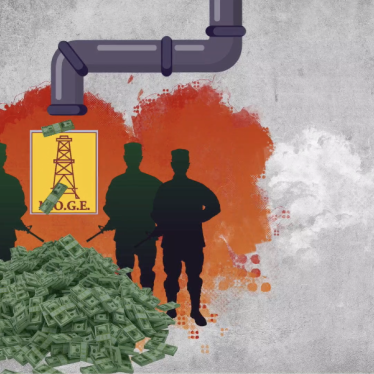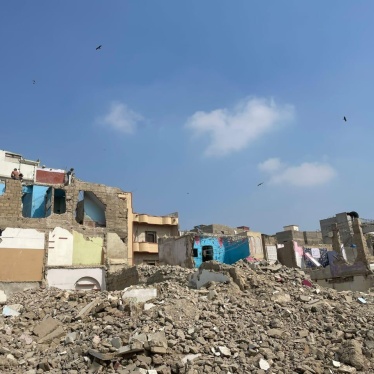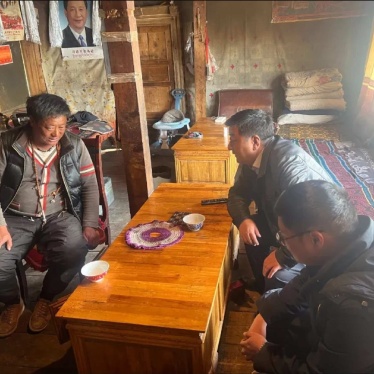(KATMANDU, Nepal) -- "After the royal proclamation, we own the country for the next three years," the captain from the Royal Nepali Army told the blindfolded student he was kicking.
That was the sentiment of the army on Feb. 1, when King Gyanendra assumed all executive authority and suspended most civil rights. To underscore who was behind the coup, one of the king's first acts was to prohibit any speech or act that criticized or "hurt the morale" of the armed forces.
The blindfolded student had apparently run afoul of this new rule and thus found himself detained and beaten, along with 57 other students, at Fulbari Barracks in the trekking resort of Pokhara. As he explained to me a week later in Pokhara, "none of us thought we would leave those barracks alive."
The student was lucky - he was allowed to leave the barracks with just a few bruises. Many of those detained by the army in recent years have simply "disappeared" without a trace. As part of its war against a brutal Maoist insurgency, the Royal Nepali Army has conducted a systematic campaign of enforced "disappearances," detaining hundreds of people without warrants or charges and, too frequently, without any acknowledgment of where they are being held. After an arrest, the army usually refuses even to confirm whether the individual is still alive.
The Maoists have abducted, tortured and killed many civilians. But the army's response - establishing itself as one of the world's worst violators of human rights - is only making matters worse.
Local human rights organizations have documented more than 1,200 cases of disappearances at the hands of security forces over the past four years. The United Nations Working Group on Enforced and Involuntary Disappearances announced that in both 2003 and 2004 it had received more new reports of "disappearances" from Nepal than from any other country.
Case by case, such actions are eroding the government's credibility and, if anything, leading to public alienation from the government, thereby bolstering the position of the Maoists.
Many detainees are held in unofficial places of detention, such as army barracks, strongly suggesting that at least some senior officers and civilian officials were directly aware of their detention. Yet Nepali security forces have enjoyed almost total impunity, even before the royal putsch. The army and the Home Ministry persistently obstructed the efforts of Nepal's National Human Rights Commission to monitor places of detention and establish the whereabouts of the disappeared.
The last time the king declared a state of emergency, from November 2001 to August 2002, the number of disappearances climbed. Then, as now, human rights monitors and journalists were unable to venture out to the poor and remote villages where most abuses took place. There is every reason to fear a similar spike in the number of abuses now.
That is why the royal takeover is so dangerous. By removing even the modest constraints imposed by Nepal's small but once vibrant free press and human rights activists, the king has given the army a green light to counter the Maoists' brutality with equal or even greater violence. The result could be a downward spiral for Nepal.
The United Nations, with support from important donors like the United States, the European Union and Japan, is best placed to dispatch human rights monitors to lend support to Nepal's beleaguered group of local monitors. International and local monitors must be allowed to travel throughout the country, including the Maoist-held areas, in order to prevent the worst excesses of the fighting.
Two of the Royal Nepali Army's chief foreign suppliers, India and Britain, have suspended military aid pending the restoration of democracy and civil rights. The United States has threatened to do so, but it is still vacillating. The United States should immediately join the position taken by India and Britain; these countries should continue to signal that they will not support an army that is more apt to terrorize its own population than it is to push back the Maoists.
The king and the army are gambling that the international community will acquiesce in their seizure of power, preferring a royal takeover to a Maoist victory. But the actions of the king and the army have only worsened the crisis. The coup and the army's campaign of disappearances and violence must be reversed before all hope for democratic governance and respect for human rights in Nepal also disappear.
Sam Zia-Zarifi is Asia Division Deputy Director at Human Rights Watch.






